 Petzlover
Petzlover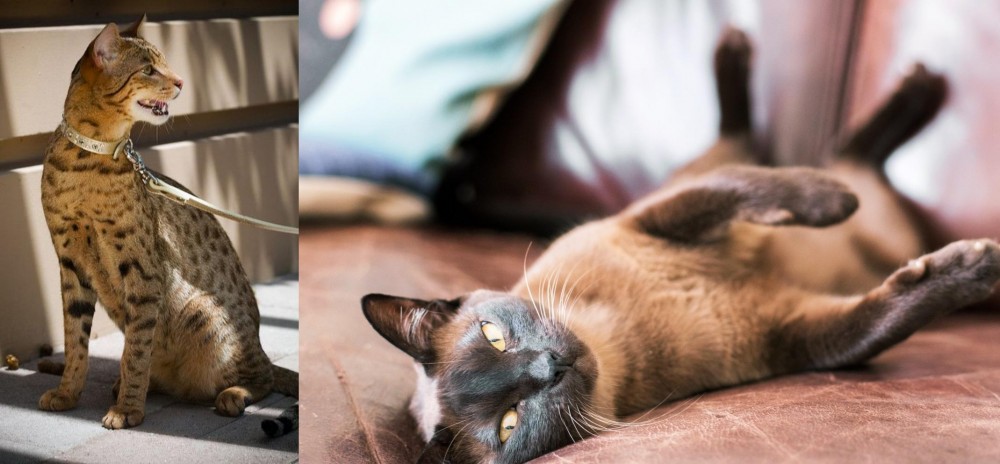 Both Ashera and Burmese are originated from United States. Ashera may weigh 9 kg / 20 pounds more than Burmese. Ashera may live 9 years more than Burmese. Ashera may have less litter size than Burmese. Ashera requires Moderate Maintenance. But Burmese requires Low Maintenance
Both Ashera and Burmese are originated from United States. Ashera may weigh 9 kg / 20 pounds more than Burmese. Ashera may live 9 years more than Burmese. Ashera may have less litter size than Burmese. Ashera requires Moderate Maintenance. But Burmese requires Low Maintenance
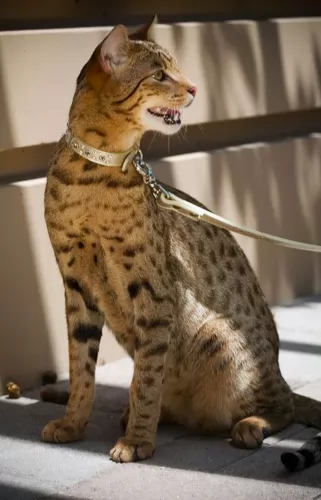 Hailing from the USA, and looking similar to the Savannah Cat, the Ashera is a hybrid breed of cat - an exotic domestic cat known as a designer cat that came about by crossbreeding the African Serval and the Asian Leopard cat.
Hailing from the USA, and looking similar to the Savannah Cat, the Ashera is a hybrid breed of cat - an exotic domestic cat known as a designer cat that came about by crossbreeding the African Serval and the Asian Leopard cat.
In fact, the cat was developed fairly recently through genetic manipulation and by the Lifestyle Pets laboratory. Also, some domestic cat was added to the mix as well, giving the cat a beautiful spotted coat similar to that of a leopard as well as some stripes.
Lifestyle Pets stopped producing these cats in 2008 so they’re hard to come by and are very expensive.
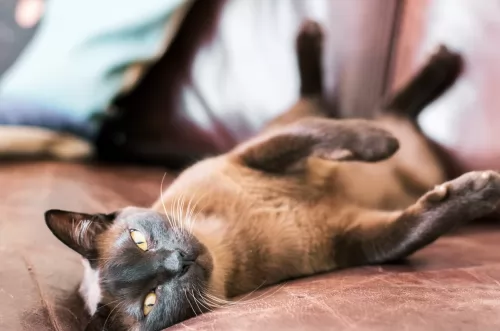 A dark brown cat together with Dr Joseph C. Thompson made their way from Burma to the United States in 1930. Cat fanciers believed that it was a dark-colored Siamese.
A dark brown cat together with Dr Joseph C. Thompson made their way from Burma to the United States in 1930. Cat fanciers believed that it was a dark-colored Siamese.
Dr. Thompson along with other breeders decided to breed the cat and she was the start of the Burmese breed.
Hybrids however, began appearing in the show hall in 1947. This was considered a violation of the show rules of the Cat Fanciers' Association and recognition of the Burmese was withdrawn until 1953. The Burmese Cat Society of America then had to give assurance to the registries that this type of thing would not happen again.
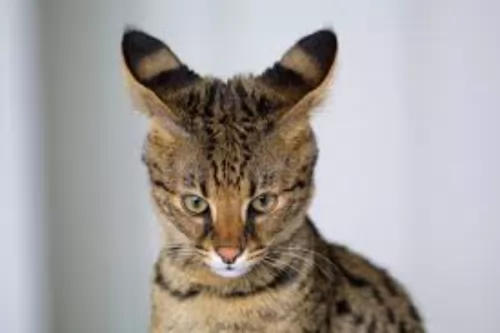 The Ashera cat has large ears with stripes and which are slightly rounded at the top. The eyes are a beautiful greenish-yellow shade.
The Ashera cat has large ears with stripes and which are slightly rounded at the top. The eyes are a beautiful greenish-yellow shade.
It's a large cat and can weigh as much as 14kg. The length of the body is long too and can be more than one meter in length. The cat is tall and if it stands up on its hind legs, it will be able to put its front paws on the shoulders of an adult.
People have always fancied owning such a large ‘domestic’ cat. There are different kinds of Ashera cats – the hypoallergenic one, the common Ashera, the snow Ashera, and the royal Aashera which looks much like the common Ashera but just a more rare type.
The Ashera is a very intelligent, independent cat and likes to climb, being a very playful cat, enjoying the company of children.
Because of its wild side, it's always on the lookout for prey. In spite of the cat’s size, it is an amicable cat and will even enjoy going on a walk with a leash. It’s not your traditional aloof cat and is both sociable and vocal and some people liken them to dogs.
Even though the cat enjoys the company of its human family, it doesn’t mind being left alone.
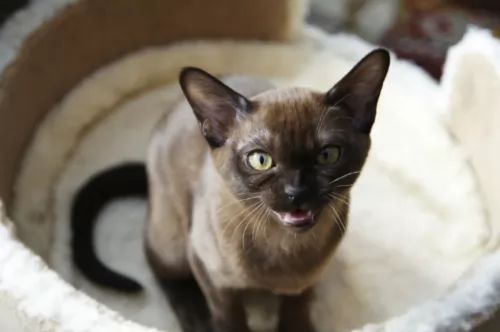 The Burmese is a medium-sized cat - fairly stocky and solid and weighs between 3 and 5kg.
The Burmese is a medium-sized cat - fairly stocky and solid and weighs between 3 and 5kg.
The dense, short coat of the Burmese comes in a variety of colors such as chocolate, cream, sable, red, tortoishell and solid colors too. The color you are most likely to see is sable.
It’s a low shedding cat so his grooming needs are low. The eyes, often a beautiful yellow shade, can be in different shades of yellow really.
Your gorgeous Burmese cat is a curious cat and finds exploring new places a huge adventure. They’re prepared to get on with some other pets in the home, but they may not be happy to welcome all cat breeds. The Burmese don't particularly like sharing their home and his human family with other cats in the home and love to get all the attention for themselves.
Once these cats mature, they do tend to settle down quite a bit and become placid, being a spectator to fun activities rather than a participant.
Still, they love their humans and are more than happy to find a place in the sun and to watch everyone from there.
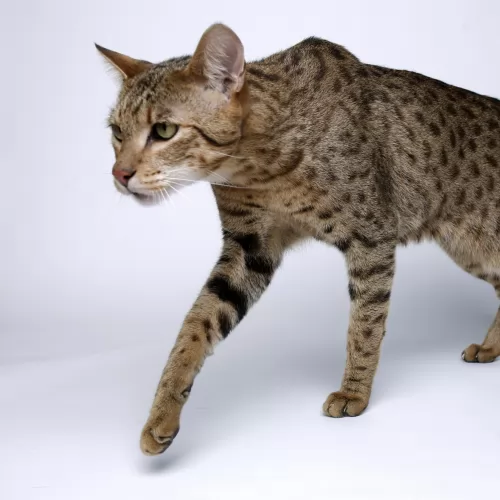 The Ashera cat is beautiful alright but you might battle to get hold of one and they cost a fortune too, being the rare breed it is.
The Ashera cat is beautiful alright but you might battle to get hold of one and they cost a fortune too, being the rare breed it is.
Hybrid cats mean that the breeding of cat species that would never have mated in the first place.
Wild cat breeds belong in the wild. They’re solitary by nature and if they battle to adjust to being in a social setting they land up in a shelter, abandoned as ‘bad news’. People aren’t clever tampering with nature particularly when it’s just to feed the ego of humans who want something unusual and exotic that nobody else has.
There are pet owners who are willing to spend enormous sums of money to own a rare cat such as the Ashera.
If you want an Ashera, there are just a few kittens being made available each year. One thing is sure, they make splendid pets, being playful, loyal, intelligent, and affectionate.
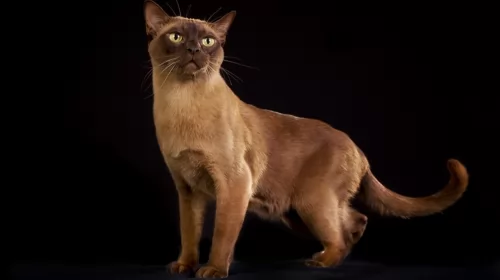 The Burmese cat loves to climb and survey his world from a high perch so don’t forget to invest in some kind of climbing apparatus or cat tree for him.
The Burmese cat loves to climb and survey his world from a high perch so don’t forget to invest in some kind of climbing apparatus or cat tree for him.
He tends to become a bit inactive as he gets older and this can be a problem and lead to obesity. Encourage your Burmese cat to come out and play to make sure he gets enough exercise.
He loves being noticed by his human family and will thrive on being petted and noticed, and of course, you’ll want to, as a Burmese has got a whole love of loving to give you too.
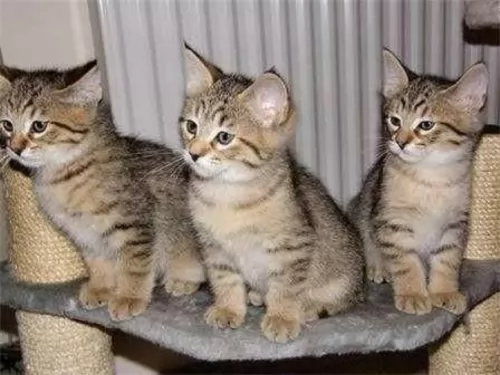 The scientists involved with the development of this cat tell us that it can reach up to 25 years of age.
The scientists involved with the development of this cat tell us that it can reach up to 25 years of age.
It’s a new cat breed and at this time there are no common diseases that affect this beautiful feline.
Remember that these cats come with an insurance policy and this means that the cat’s veterinary visits will be covered for the entire first year of its life. Your Ashera cat will also be vaccinated and chipped and the cat will have been spayed or neutered before he comes to you.
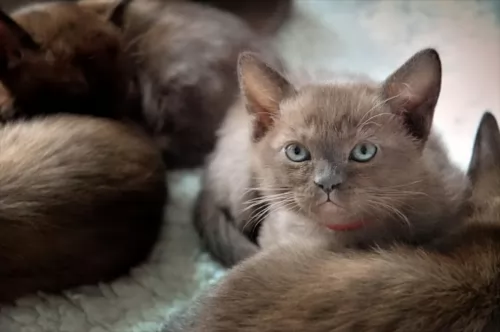 These cats are a healthy breed and if you take good care of your Burmese he can live to up to 13, 14 or 15 years of age.
These cats are a healthy breed and if you take good care of your Burmese he can live to up to 13, 14 or 15 years of age.
But you have to be aware of diabetes mellitus as well as something known as hypokalaemic polymyopathy – muscle weakness because of low blood potassium levels.
You’ve also got to look out for obesity as these are sturdy, stocky cats and overeating can lead to obesity and a host of health issues such as painful joints and diabetes.
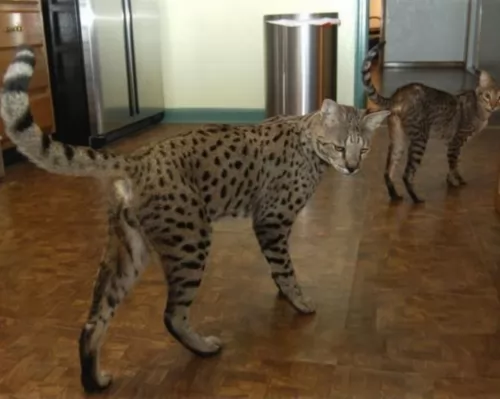 The Ashera doesn’t need any special food as they will eat the same cat food that your other cats eat. If you feed your cat commercially manufactured food, make sure its food that is of a high quality.
The Ashera doesn’t need any special food as they will eat the same cat food that your other cats eat. If you feed your cat commercially manufactured food, make sure its food that is of a high quality.
Those who have owned an Ashera cat, say tthat looking after an Ashera is much the same as lookijg after your regular domestic cat,
These cats like warmth so make sure you provide him with a warm blanket in his sleeping area.
You won’t have to worry about spaying or neutering your Ashera cat, as they are sterile. The ony place you can buy this cat is from the Lifestyle Pets laboratory. The laboratory implants a chip into the cat and they also undertake to vaccinate the cat for a year.
It’s a low maintenance cat and you can brush the short coat from time to time. Ensuring a good diet will bring about a lustrous, healthy coat.
The cat is intelligent so it will require toys that get him thinking and working things out. Also supply the Ashera with a scratching post.
They Ashera will need the best kind of cat food there is and you will want to ensure he has a good intake of protein and fats to maintain his gorgeous coat and his muscles.
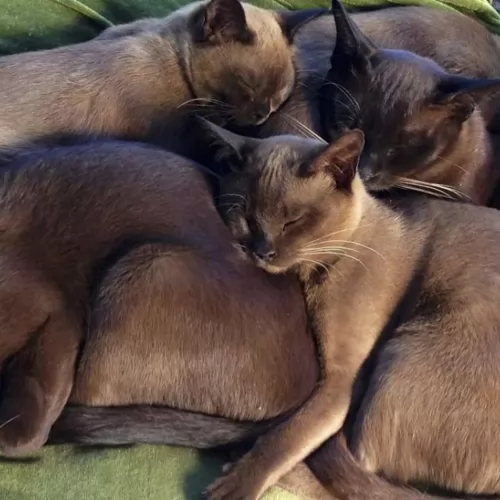 Burmese cats are naturally good climbers and you will need to provide these cats with some kind of climbing tree or something else where they can climb and perch.
Burmese cats are naturally good climbers and you will need to provide these cats with some kind of climbing tree or something else where they can climb and perch.
While adult Burmese cats tend to be fairly placid cats, they still love to play and love the interaction between themselves and their humans. As he gets older, don’t forget to keep up a regular playtime with him.
Shedding is minimal with the Burmese cat and weekly brushing will be a good bonding session and also keep your Burmese cat’s coat healthy and shiny by removing dust and loose hair.
Your fur child requires the best – a balanced cat food packed with protein to support him in all his activities and to ensure he maintains a good weight.
There are many excellent commercially manufactured cat foods on the market so learn to understand the ingredients and what nutrients are required.
Certainly, your Burmese kitten will require a complete and balanced kitten food with all the right nutrients to ensure good bone and coat growth. Then it is time to choose a kitten food which will later change to adult food as your kitten matures.
There are excellent cat foods for every stage and season of your cat’s life and from top brands – people who know the needs of cats.